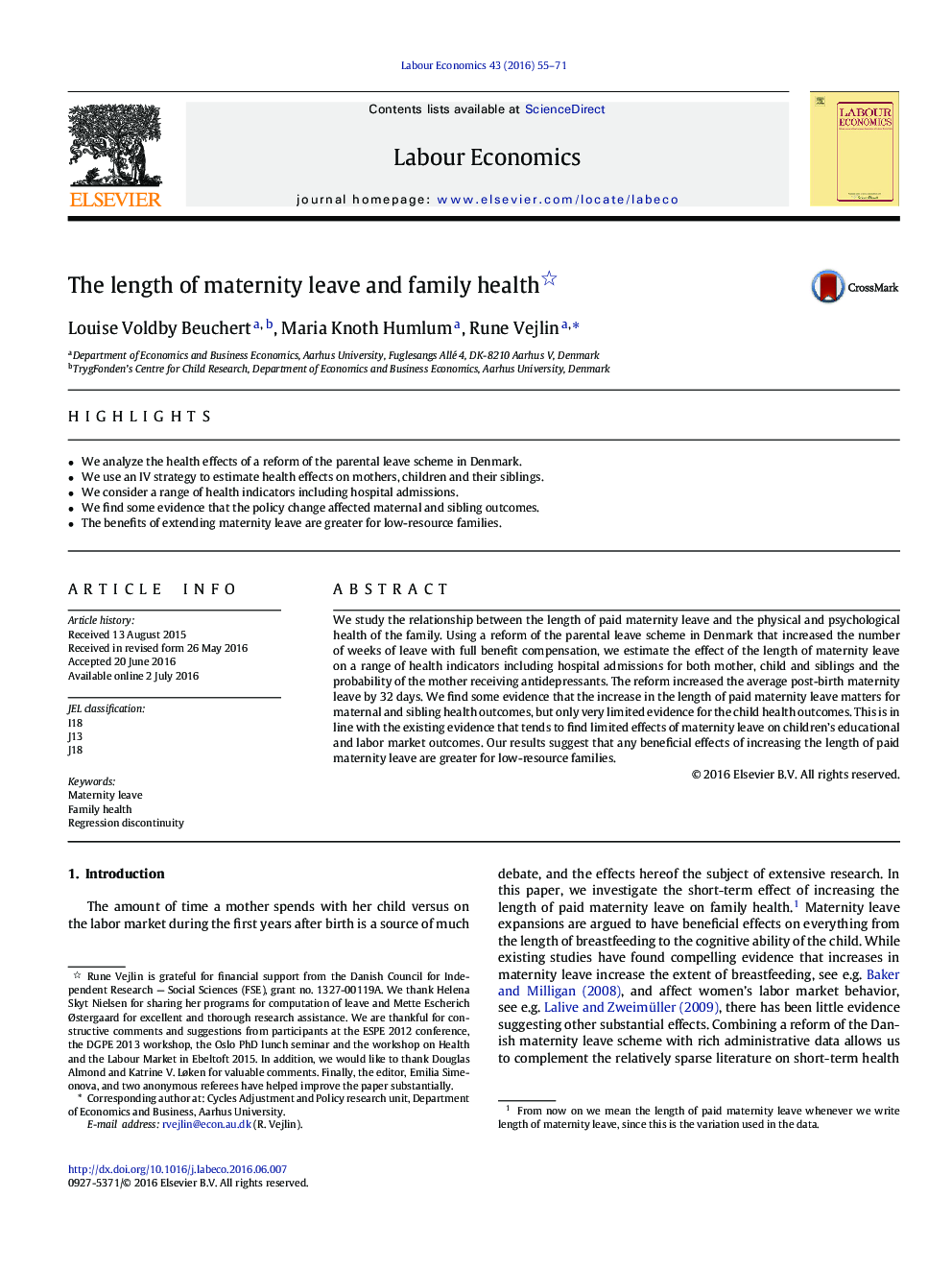| Article ID | Journal | Published Year | Pages | File Type |
|---|---|---|---|---|
| 5102058 | Labour Economics | 2016 | 17 Pages |
Abstract
We study the relationship between the length of paid maternity leave and the physical and psychological health of the family. Using a reform of the parental leave scheme in Denmark that increased the number of weeks of leave with full benefit compensation, we estimate the effect of the length of maternity leave on a range of health indicators including hospital admissions for both mother, child and siblings and the probability of the mother receiving antidepressants. The reform increased the average post-birth maternity leave by 32 days. We find some evidence that the increase in the length of paid maternity leave matters for maternal and sibling health outcomes, but only very limited evidence for the child health outcomes. This is in line with the existing evidence that tends to find limited effects of maternity leave on children's educational and labor market outcomes. Our results suggest that any beneficial effects of increasing the length of paid maternity leave are greater for low-resource families.
Related Topics
Social Sciences and Humanities
Economics, Econometrics and Finance
Economics and Econometrics
Authors
Louise Voldby Beuchert, Maria Knoth Humlum, Rune Vejlin,
